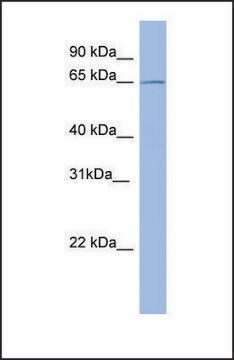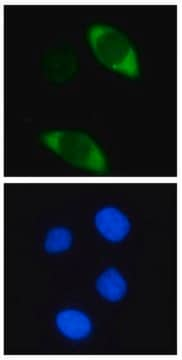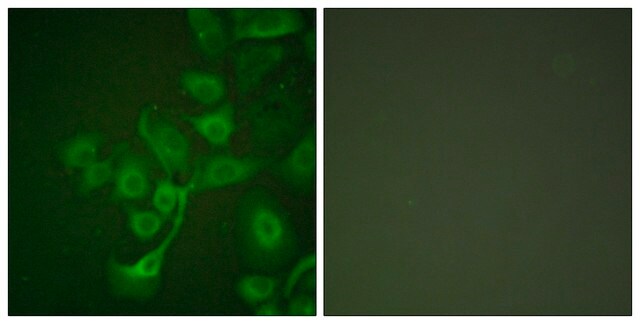ABE1338
Anti-METTL14 Antibody
from rabbit, purified by affinity chromatography
Sinónimos:
N6-adenosine-methyltransferase subunit METTL14, m6A methyltransferase METTL14, Methyltransferase-like protein 14
About This Item
Productos recomendados
origen biológico
rabbit
Nivel de calidad
forma del anticuerpo
affinity isolated antibody
tipo de anticuerpo
primary antibodies
clon
polyclonal
purificado por
affinity chromatography
reactividad de especies
mouse, human
reactividad de especies (predicha por homología)
zebrafish (based on 100% sequence homology), rat (based on 100% sequence homology)
técnicas
western blot: suitable
Nº de acceso NCBI
Nº de acceso UniProt
modificación del objetivo postraduccional
unmodified
Información sobre el gen
human ... METTL14(57721)
Descripción general
Especificidad
Inmunógeno
Aplicación
Calidad
Western Blotting Analysis: 0.5 µg/mL of this antibody detected METTL14 in 10 µg of Raji nuclear extract.
Descripción de destino
Otras notas
Not finding the right product?
Try our Herramienta de selección de productos.
Opcional
Código de clase de almacenamiento
12 - Non Combustible Liquids
Clase de riesgo para el agua (WGK)
WGK 1
Punto de inflamabilidad (°F)
Not applicable
Punto de inflamabilidad (°C)
Not applicable
Certificados de análisis (COA)
Busque Certificados de análisis (COA) introduciendo el número de lote del producto. Los números de lote se encuentran en la etiqueta del producto después de las palabras «Lot» o «Batch»
¿Ya tiene este producto?
Encuentre la documentación para los productos que ha comprado recientemente en la Biblioteca de documentos.
Nuestro equipo de científicos tiene experiencia en todas las áreas de investigación: Ciencias de la vida, Ciencia de los materiales, Síntesis química, Cromatografía, Analítica y muchas otras.
Póngase en contacto con el Servicio técnico







